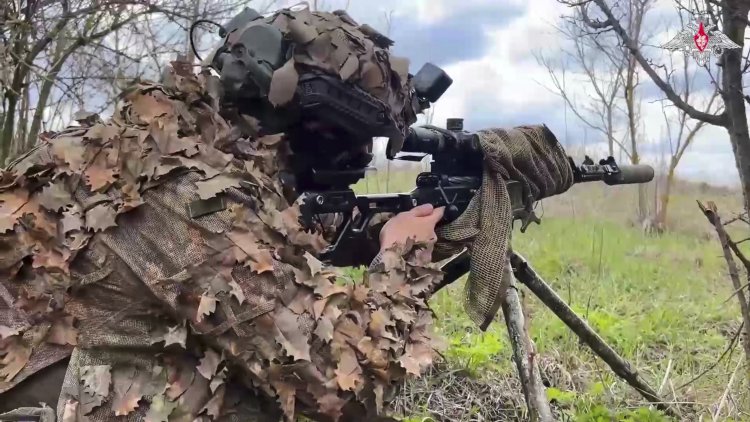Russian foreign minister remains vague on potential peace deal details
Our demeanor is one of politeness, and, unlike certain others, we maintain confidentiality regarding the topics addressed in negotiations.

An excerpt released on Thursday highlighted Lavrov’s comments: “The president of the United States believes, and I think rightly so, that we are moving in the right direction.” However, the full conversation illustrated the complexity of the situation and the ambiguity surrounding various points, unless perhaps they were straightforward.
Lavrov refrained from discussing the specifics of the deal proposed by President Donald Trump for Russian President Vladimir Putin and Ukrainian President Volodymyr Zelenskyy. He remarked, “We are really polite people, and, unlike some others, we never discuss in public what is being discussed in negotiations. Otherwise, negotiations are not serious. To ask for somebody's opinion regarding the substance, go to Zelenskyy. He is happy to talk to anybody through media, even to President Trump.”
When pressed further, he stated, “We are serious people and we consider serious proposals. We make serious proposals, and this is a process which is not supposed to be public until the end of it.”
Lavrov was also evasive about whether a deal was near, saying, “Now I understand, by the way, why you wanted to get the brief answers to your questions. You want some slogans to be,” just as Brennan attempted to clarify Trump’s comments on Russia's stance.
Brennan challenged Lavrov’s assertion that Ukraine had prohibited the use of the Russian language. “It is not illegal, Minister Lavrov, to speak Russian. The President of Ukraine speaks Russian,” she countered. She also inquired about Russia's reaction to Trump's Truth Social post urging, “Vladimir, STOP!” following a Russian attack on Kyiv.
Lavrov reiterated his position: “We will continue to target the sites used by the military of Ukraine, by some mercenaries from foreign countries and by instructors whom the Europeans officially sent to help target Russian civilian sites.”
When discussing the effects of American sanctions, Lavrov indicated that the U.S. might unexpectedly lift them, flooding Russian markets. “Why do you ask me? You just quoted my statement,” he replied, adding that if there were questions regarding the U.S. response, they should be directed to an American representative.
Brennan pressed on, asking, “So you want to keep sanctions in place. Is that really the Russian position?” Lavrov responded, “I don't want to re-explain what I explained, I think, in quite, in quite clear manner.” Brennan cited her prior quote, to which Lavrov quipped, “very close to the real content. Yeah. It was a bit longer than normally you prefer. I know.”
Addressing the potential timeline for an agreement, Brennan pointed out that Trump was nearing 100 days in office and that he and Secretary of State Marco Rubio had suggested that the window for a deal was closing. Lavrov acknowledged the impatience, saying, “We understand, we understand the impatience, because in American culture, you create expectations, and you ignite tension around those expectations. This does not help to do realpolitik.”
He concluded that Russia remained open to dialogue and negotiations, asserting that they would not prepare for failure—a trait he noted would indicate inexperienced deal-makers.
On the subject of Crimea, which Russia annexed from Ukraine in 2014, Lavrov was unambiguous: “This is a done deal.”
Trump’s repeated promises to end the war on his first day in office have yet to materialize, and on Saturday, he expressed skepticism about Putin's intentions in the conflict, writing on Truth Social, “There was no reason for Putin to be shooting missiles into civilian areas, cities and towns, over the last few days.”
Mathilde Moreau for TROIB News












